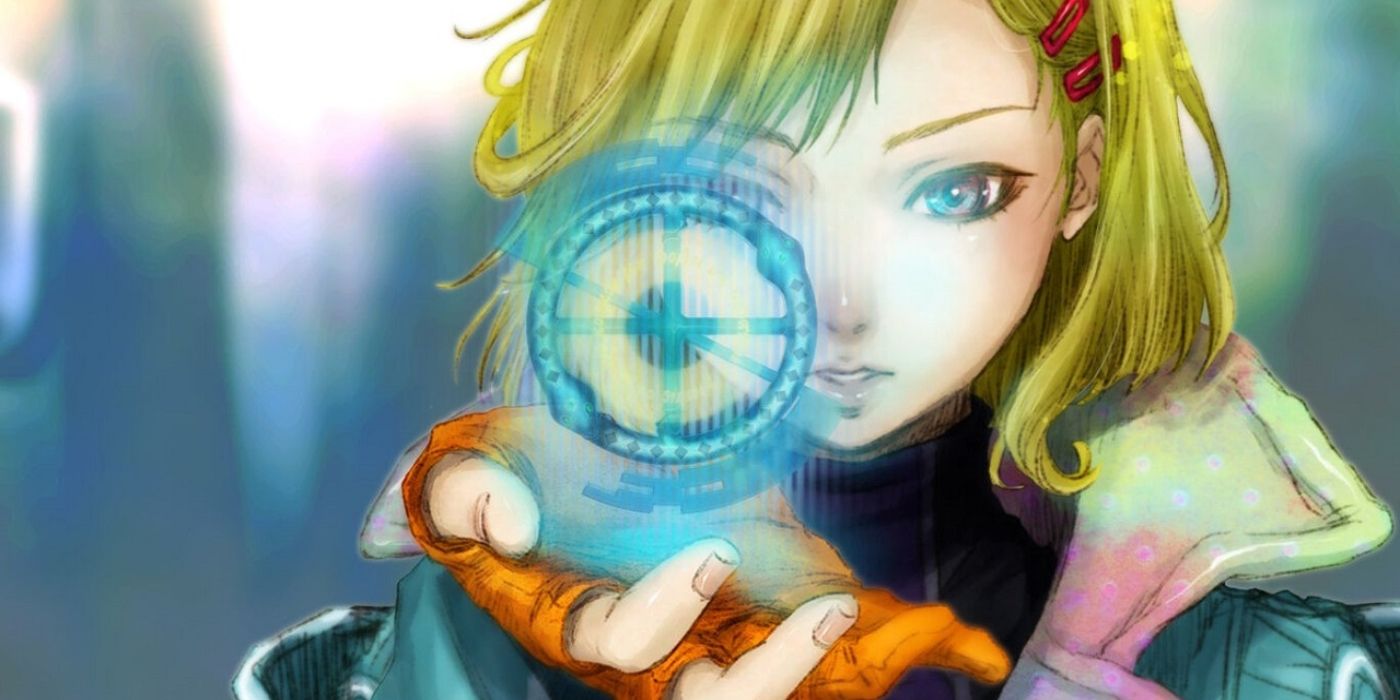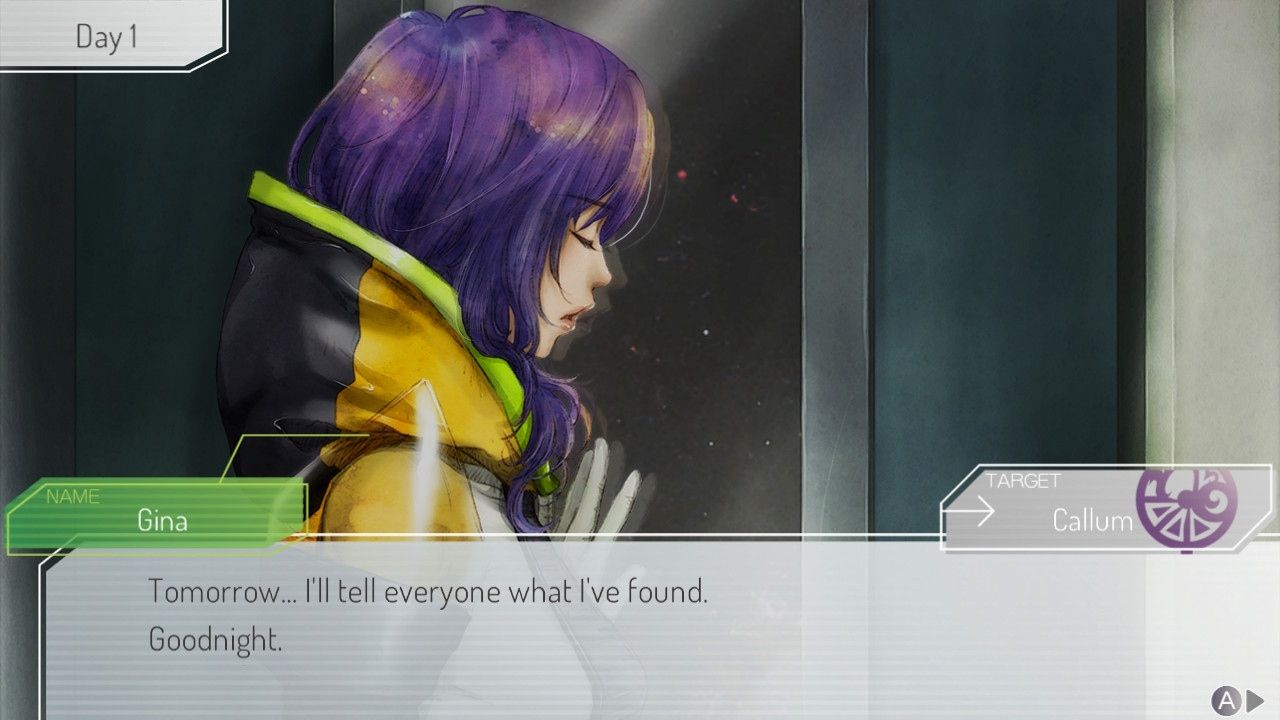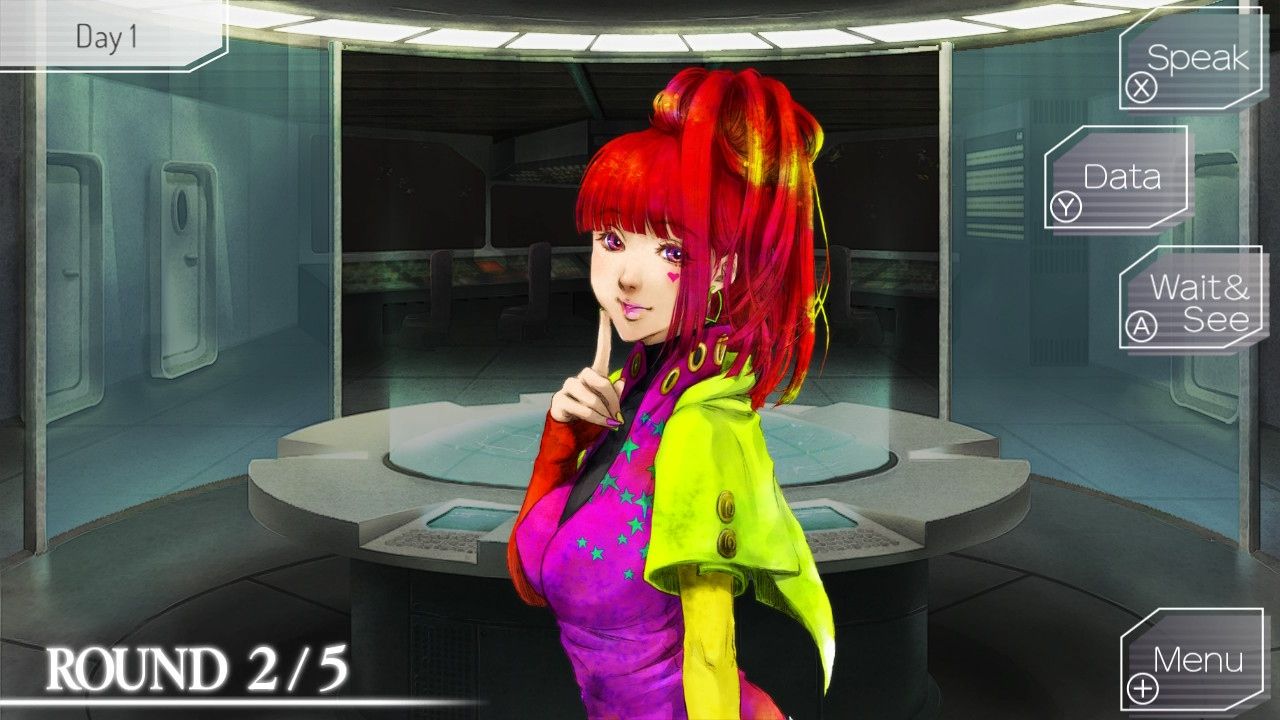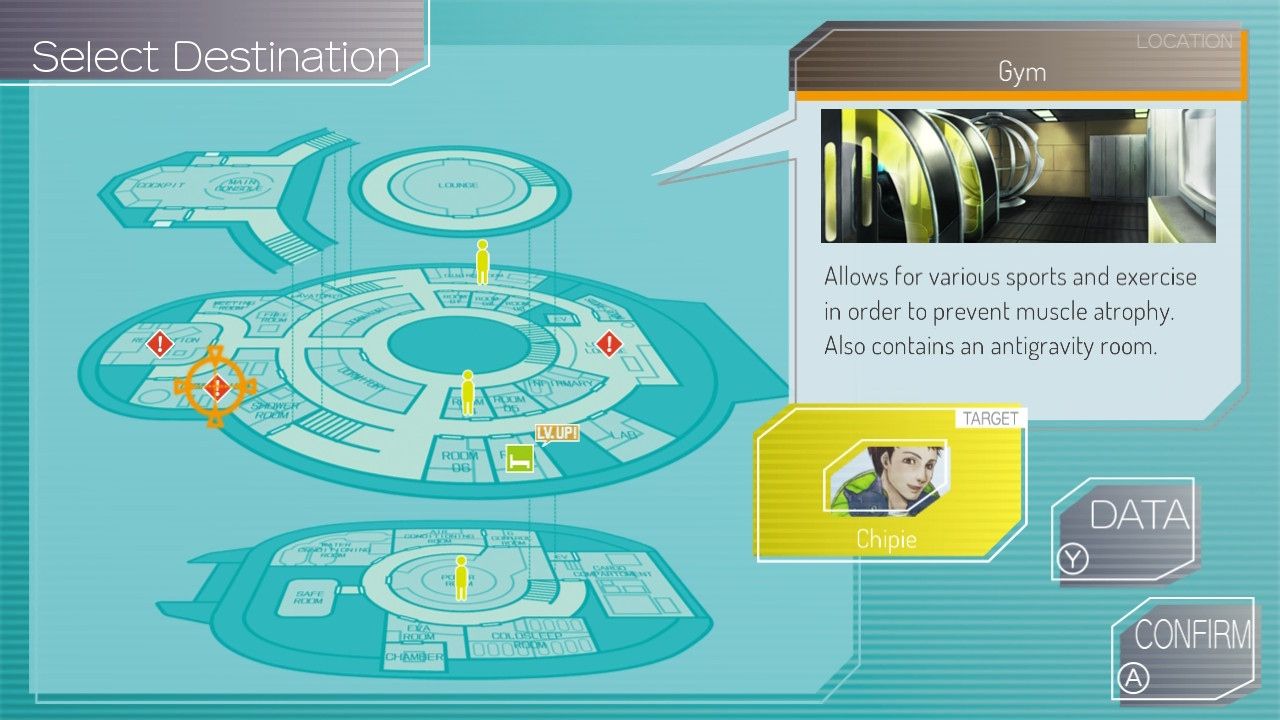Spawning hits such as Mafia, Ultimate Werewolf, and Spyfall, the social deduction card game genre has become a significant success over the years, forcing players to lie, coerce, and sus out their friends in the hopes of having their hand raised as the victor. It was inevitable that the idea would eventually make its way to the world of video games, and so it has, leading to immensely popular multiplayer releases like Town of Salem, G-Mod's Trouble In Terrorist Town, and, of course, Among Us.
Yet, while the genre has flourished in recent years, few games offer as unique a take on the social deduction experience as Gnosia. Originally debuting on PS Vita in Japan and now making its Western debut on Switch, developer Petit Depotto's beautiful visual novel initially poses something of an odd elevator pitch. Much like other social deduction games, it centers on the player having to root out evil alien parasites that have infected several crewmates on a spaceship. However, Gnosia is entirely single-player, taking the human element out of the equation.
On paper, that sounds like it should remove everything that makes the social deduction genre so compelling – after all, games like Among Us rose to prominence due to the unpredictable interactions they prompt between human players. But in practice, Petit Depotto manages to use its unorthodox premise to create a wholly unique experience. Story takes precedence in Gnosia, and the way the game manages to weave an intriguing narrative through such an unlikely genre creates a poignant sci-fi thriller that only deepens the longer players immerse themselves in it.
The actual crux of the tale is fairly simple. The player awakes on a spaceship inhabited by a crew of quirky sci-fi characters, quickly being informed that a murderous parasite known as a Gnosia has invaded the vessel and currently lurks among its occupants. Every day, the crew comes together to vote on who should be put into "cold sleep," removing them from the game and potentially eliminating the hostile alien force. Whether the player is ultimately triumphant in cleansing the ship doesn't matter, as success or failure results in them returning to the moment they awoke on the ship. This quickly becomes the structure of the game, as the player is tasked with reliving "loops" as they try to solve the mystery behind the Gnosia invasion.
Each loop is essentially an alternate dimension filled with endless variables. They'll feature an assortment of different characters, thrust randomly selected crewmates into special roles, and, on occasion, come loaded with significant events that push forward the game's underlying story. The latter leads to some of Gnosia's best moments, as seemingly innocuous loops suddenly result in harrowing character revelations or challenging alternate goals.
It's made better by the fact that Gnosia's cast is filled with intriguing suspects to interrogate. Whether it's the goofy, good-natured alien Shigemichi, the talking beluga whale Otome, or the mysterious Yuriko – whose ominous past sets up some of the game's more tantalizing mysteries – unraveling each character's origin is an absolute treat. The plot rarely plays it safe either, filling its runtime with constant twists and turns that cast Gnosia's roster in a new light or add greater perspective to some of its more cryptic moments.
There is a lot of game to get through to reach these rewarding story beats though, which is as much Gnosia's gift as it is its curse. The core structure of the game revolves around trials. Each of these confrontational meetings sees the group gets five rounds to air their suspicions, defend their friends, and coerce others into thinking the same way as them. Early in the game, players will mostly spend their time trying to sus out potential threats, looking for holes in people's strategies, or assessing things that don't quite line up. Although they have to make sure they're actively engaging in conversations and not dominating the discussion – both of which are red flags to their AI crewmates – it's mostly kept simple.
However, as the plot presses on, things become increasingly complex. Engineers and doctors enter the fray with the ability to identify Gnosia, meanwhile, a guardian angel is added that prevents hostiles from killing teammates and a bug will start appearing that – if left alive – instantly wins the game. On top of that, the player can take the role of the Gnosia themselves, flipping the game on its head as they attempt to fool their crewmates and pick them off one by one.
Away from trials, players are able to talk with crewmates and level up skills, which increase their efficiency in discussions as well as award them abilities they can use to better pinpoint imposters. Although some are forgettable, others are essential to playing the game, such as using the small talk skill to downplay suspicion or the seek help ability to call on other crewmates for backup.
When there's a particularly tricky loop to solve, Gnosia can be an exceptionally fun brain teaser, made better by the fact each loop only lasts around 15 minutes. Earlier cycles boast plenty of story moments as well, keeping initial playthroughs exciting as characters' arcs slowly unfold.
However, Gnosia often feels much too long for its somewhat repetitive premise. To beat the game's campaign, players are tasked with filling their crewmates' data logs, the likes of which are unlocked through experiencing random events. These are made slightly easier to find with the use of an "event search" button, but there's still plenty of luck involved, with story beats relying on specific characters being assigned to loops and staying alive long enough for their narratives to playout. Miss these opportunities or mess them up and there's no way to restart the loop; players will have to hope they come across the event again sooner rather than later.
These moments can be frustrating towards the game's climax, when events are more difficult to come across and the repetitive nature of Gnosia's gameplay loop begins to wear thin. Through a lot of the finale, players will likely wind up plowing through what feels like endless reams of standard social deduction gameplay devoid of any narrative, wondering whether they're missing some cue that will finally get the story back on track or if the agonizingly slow pacing is intentional.
But Gnosia overcomes these issues because it's such a well-put-together package. Combining the visual novel and social deduction game and attempting to turn the pair into a poignant, single-player, narrative-driven adventure feels like a nigh-on unachievable goal. Yet, Gnosia somehow manages to make the unorthodox blend work. From its compelling characters and unique gameplay hook to its stunning art style and engaging story, Petit Depotto has created a wholly original sci-fi thriller that's worth enduring a few late-game pacing issues to experience.
Gnosia is out now on Nintendo Switch and PS Vita. Game Rant was provided a Switch code for this review.




